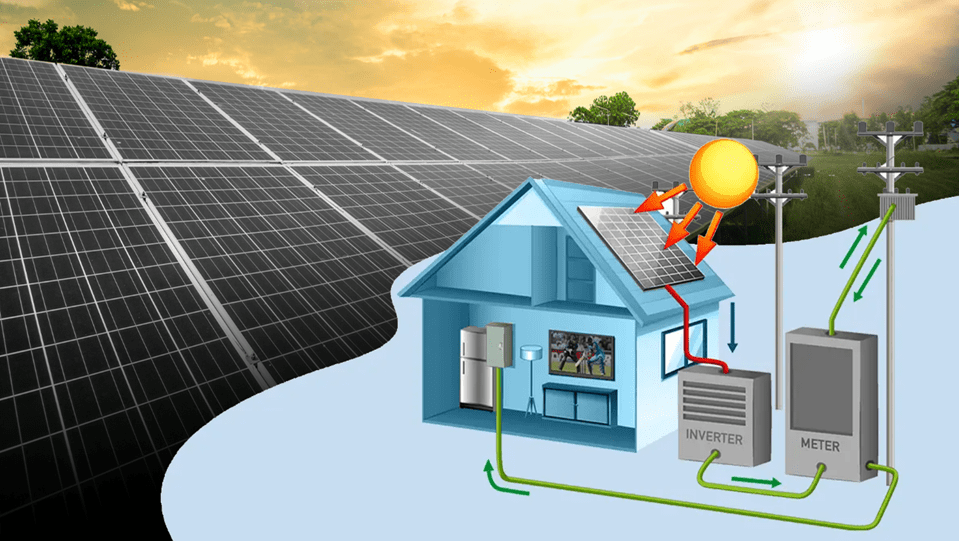What is the difference between net metering and net billing in Arizona?
What is the difference between net metering and net billing in Arizona?
Blog Article
Arizona, one of the sunniest states in the U.S., offers a range of solar incentives to encourage homeowners and businesses to switch to clean energy. One such incentive is solar net billing in Arizona, a compensation program for solar owners who send excess energy from their solar panels to the grid. But how does net billing work, and how does it compare to net metering? Let’s dive into the details.
What Is Net Billing in Arizona?
Net billing in Arizona allows solar panel owners to earn credits by transferring excess energy generated by their solar system to the utility grid. However, unlike net metering, where you are credited at the retail electricity rate, net billing offers credits at a lower, wholesale rate. This means that while you still benefit, you earn slightly less per unit of energy sent to the grid. You receive credits on your electricity bill, which can be used to offset future electricity costs.
Net Billing vs. Net Metering: Key Differences
The main difference between net metering and net billing lies in how much credit you receive for excess energy. In net metering, solar owners are compensated at the retail electricity rate—the same rate they pay for power. In net billing, on the other hand, the compensation is at the wholesale rate, which is generally lower. For example, if your utility charges $0.08 per kilowatt-hour (kWh), you might only receive $0.05 per kWh for the energy you send to the grid under net billing.
While net billing offers lower compensation than net metering, it's still a way to reduce your energy costs, especially if you pair solar panels with a battery storage system.
How Does Solar Net Billing Work in Arizona?
Utilities in Arizona provide an “excess generation credit rate” for the energy you send to the net billing grid. Each utility has a slightly different rate, but it’s always lower than the retail price of electricity. These credits are applied to your utility bill to offset your energy costs during times when your solar panels aren’t producing enough power.
One key advantage of Arizona’s net billing system is that once you lock in your excess generation rate, it remains stable for 10 years. This ensures that your rate doesn’t drop dramatically year after year, giving you consistent savings over time.
Instantaneous Netting and Monthly Credits
Under Arizona’s net billing system, utilities calculate the energy you generate and consume over short intervals, such as an hour. This approach, called instantaneous netting, can reduce your overall savings because it doesn’t account for excess energy you produce on sunny days to offset higher energy usage on later days. On a monthly basis, any excess credits remaining will be applied to your next bill.
The Debate Over Net Billing in Arizona
In August 2023, Arizona’s Corporation Commission (ACC) rejected a proposal that would have drastically reduced the Residential Compensation Plan (RCP) by 37%. Instead, the ACC opted for a smaller 10% reduction in the excess generation credit rate. This decision protects the value of solar for Arizona residents, but further changes to the net billing system are expected in the coming years.
Is Solar Worth It in Arizona Despite Net Billing?
Yes! Although net billing offers lower compensation than net metering, solar energy remains a valuable investment in Arizona. The state’s abundant sunshine, combined with the 30% federal tax credit and other state solar incentives, means that solar panel owners can still achieve significant savings. To maximize your savings, consider installing solar panels as soon as possible, as excess generation rates will likely decrease over time.
How to Boost Solar Savings with a Battery System
One way to enhance your savings under net billing is by pairing your solar system with a battery storage solution. Instead of sending excess energy to the grid for lower compensation, you can store it in your battery. Later, you can use this stored energy during periods when your solar panels aren’t generating enough power, effectively using your own energy at its full retail value.
Conclusion: Are Solar Panels Worth It in Arizona?
Despite the shift from net metering to net billing, solar panels are still worth the investment in Arizona. By taking advantage of the state’s incentives, including federal tax credits and utility rebates, you can significantly reduce your energy costs. Pairing your solar system with battery storage will further increase your savings and make the most of Arizona’s plentiful sunshine.
 Report this page
Report this page